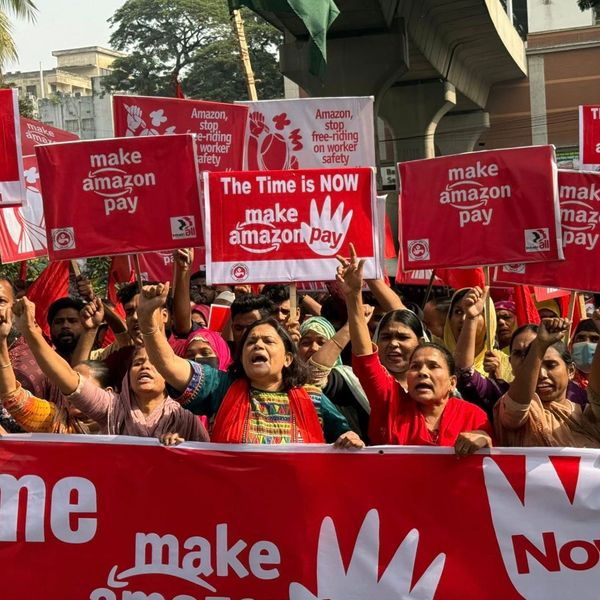For nearly seven years, I’ve clocked in and out at a Walmart in Memphis, Tennessee, where I stock shelves, help customers, and push myself through double shifts to make ends meet. Like so many of my colleagues, I’ve poured my time and energy into this company, and also like so many of them, that hard work has gone unnoticed.
I have more than 15 years of managerial retail experience, but I still find it extremely difficult to advance at Walmart. As a Black woman, this is unfortunately not a unique experience, especially at Walmart. Even though I’ve been working for the company for years, people who look like me are rarely given opportunities for growth. Management will keep you at the cash register for decades, with little hope for a raise or a promotion.
So when Walmart announced it was joining the wave of corporations that are rolling back their Diversity, Equity and Inclusion (DEI) policies, it felt like a punch to the gut, and makes me question if I still belong here.
While Walmart executives are granting themselves multi-million dollar raises, the Black and brown workers who make their company successful are struggling.
Walmart is the single largest private employer of Black workers in the United States, and as the biggest retailer in the country, Walmart is granted the opportunity to set the standard for other retailers across the nation. Their policies don’t just influence what happens inside its stores — they shape the lives of millions of working families across this country.
Nationwide, more than half of Walmart associates are women and people of color, yet the majority of leadership roles still go to white men.
But it’s not just limited opportunities for growth that are stifling Black Walmart employees. I can tell you from my experience, and the conversations I’ve had with colleagues, that inequities are taking place at stores across the country. We see who gets promoted and who doesn’t. Which employees get steady work hours, and which get sent home early by their managers. We see who gets ignored, and who gets a voice.
These discrepancies in how Walmart associates are treated too often seem to fall along racial and gender lines.
DEI initiatives were created to address these very problems by helping to promote fair treatment and put an end to racial and gender discrimination in the workplace. These are policies created to ensure everyone has a fair shot, and that every worker is treated with respect and dignity.
This common sense framework benefits not just workers, but also a company’s long-term success. A diverse and inclusive workplace is a stronger workplace. When employees feel valued and see opportunities for growth, regardless of their race or background, they are much more engaged, productive, and loyal.
With DEI now cast aside, Walmart workers are feeling the opposite. We feel left behind, jaded, and betrayed.
But shareholders have a powerful opportunity to step up and support Walmart's workforce. In June, I’ll be presenting a shareholder proposal, alongside United for Respect Education Fund, calling for a third-party independent racial equity audit at Walmart.
This proposal is not about pointing fingers. Instead it’s about seeking truth, accountability, and transparency so that we can begin to actually change the culture at Walmart.
For years, Walmart has stated its commitment to diversity and inclusion, and an audit would provide an objective assessment of whether these commitments translate into real equity within the company.
We cannot sit by as Walmart makes hollow promises, and we cannot roll back the clock on workplace equality. While Walmart executives are granting themselves multi-million dollar raises, the Black and brown workers who make their company successful are struggling. Walmart has the ability to level the playing field by setting the gold standard for employee treatment. This is a company that not only can afford to do better, but has a moral obligation to do better.
The proposal sends a clear message: we need transparency, accountability, and a genuine commitment to racial equity that goes beyond words. As someone who has dedicated years to this company, I urge shareholders to stand with the workers who make them profitable, and ensure that accountability isn’t lost with Walmart's abandonment of DEI.



